The world has witnessed unprecedented challenges with the outbreak of the Coronavirus, scientifically known as COVID-19. This pandemic has changed the way we live, work, and interact. Two key terms that have become ubiquitous in our daily conversations are “quarantine” and “isolation.” In this comprehensive article, we will explore these terms, their significance, and how they play an essential role in curbing the virus’s propagation

- Quarantine vs. Isolation
- Why Quarantine and Isolation are Necessary
- Key Terms to Understand
- How to Quarantine
- How to Isolate
- The Role of Testing
- Quarantine and Isolation Guidelines
- Emotional and Mental Health
- Quarantine and Isolation Challenges
- Quarantine and Isolation: A Global Effort
- The Future of Pandemic Preparedness
- Conclusion
- FAQs
Quarantine vs. Isolation
Definitions and Differences
Quarantine and isolation are two distinct measures aimed at preventing the transmission of COVID-19. Quarantine is the practice of separating and restricting the movement of individuals who may have been exposed to the virus but are not showing symptoms. On the other hand, isolation is the separation of individuals who are confirmed to be infected with COVID-19, whether or not they are exhibiting symptoms.
Why Quarantine and Isolation are Necessary
Preventing the Spread of COVID-19
Quarantine and isolation are vital tools in curbing the spread of the virus. By isolating infected individuals and quarantining those who might be infected, we can break the chain of transmission and reduce the risk of further infections.
Protecting Vulnerable Populations
These measures are especially critical in protecting vulnerable populations, such as the elderly and those with underlying health conditions. Isolation prevents infected individuals from spreading the virus to others, while quarantine safeguards those at risk of contracting it.
Key Terms to Understand
To better comprehend the significance of quarantine and isolation, it’s essential to grasp some key terms related to the pandemic:
- COVID-19: Coronavirus means “Covid Sickness 2019” and is the authority name of the disease brought about by the novel Covid.
- Quarantine: Quarantine is the practice of separating and restricting the movement of individuals who may have been exposed to the virus.
- Isolation: Isolation is the separation of individuals who are confirmed to be infected with COVID-19.
- Asymptomatic vs. Symptomatic: Some individuals infected with COVID-19 show symptoms (symptomatic), while others do not (asymptomatic).

How to Quarantine
Steps to Follow
If you have been in close contact with a confirmed case or have traveled to an area with high transmission, you should follow these steps to quarantine:
- Stay at home.
- Avoid contact with others.
- Monitor your health.
- Follow local guidelines for the duration of quarantine.
Duration of Quarantine
The recommended duration of quarantine may vary, but it usually lasts for 10-14 days, during which you should remain vigilant for any symptoms.
How to Isolate
Steps to Follow
If you have tested positive for COVID-19 or are symptomatic, follow these steps to isolate:
- Stay in a separate room.
- Use a separate bathroom, if possible.
- Avoid contact with household members.
- Wear a veil when in the vicinity of other people.
Duration of Isolation
The duration of isolation typically lasts until you are no longer contagious. This period can vary but is generally at least 10 days after symptoms first appear.
The Role of Testing
Testing During Quarantine and Isolation
Testing plays a pivotal role in managing COVID-19. If you are in quarantine or isolation, getting tested can help determine whether you are infected. Follow local guidelines for testing and consult with healthcare professionals.
Quarantine and Isolation Guidelines
Following Official Recommendations
It is crucial to adhere to official guidelines and recommendations for quarantine and isolation provided by health authorities and the government. This ensures that you are taking the necessary steps to protect yourself and those around you.
Emotional and Mental Health
Coping with Quarantine and Isolation
Quarantine and isolation can take a toll on one’s mental and emotional well-being. It’s essential to stay connected with loved ones, maintain a routine, and seek support when needed.

Quarantine and Isolation Challenges
Addressing Common Difficulties
Challenges during quarantine and isolation include boredom, loneliness, and anxiety. Finding ways to stay engaged and maintain your mental health is essential.
Quarantine and Isolation: A Global Effort
International Response to the Pandemic
The COVID-19 pandemic has necessitated a global effort. Countries worldwide have implemented quarantine and isolation measures to contain the virus, highlighting the need for international cooperation in managing pandemics.
The Future of Pandemic Preparedness
Lessons Learned from COVID-19
The pandemic has underscored the importance of preparedness. The world has learned valuable lessons from this crisis, which will guide future pandemic response efforts.
Conclusion
In conclusion, quarantine and isolation are indispensable tools in the fight against the COVID-19 pandemic. By understanding these key terms and following the guidelines provided, we can collectively work to mitigate the spread of the virus and protect our communities.
FAQs
- What’s the difference between quarantine and isolation?
- Quarantine is for individuals who may have been exposed to the virus, while isolation is for confirmed cases, whether symptomatic or asymptomatic.
- How long should I quarantine if I’ve been in contact with a COVID-19 case?
- The recommended duration of quarantine is typically 10-14 days, as per local guidelines.
- Can I get tested while in quarantine or isolation?
- Yes, testing is essential, and you should follow local guidelines for testing.
- What can I do to stay mentally healthy during quarantine or isolation?
- Staying connected with loved ones, maintaining a routine, and seeking support when needed can help maintain mental health.
- How has the world responded to the COVID-19 pandemic on a global scale?
- Countries worldwide have implemented quarantine and isolation measures as part of the global effort to control the pandemic. International cooperation has been crucial in managing the crisis.
Important Notice:
The information provided on “health life ai” is intended for informational purposes only. While we have made efforts to ensure the accuracy and authenticity of the information presented, we cannot guarantee its absolute correctness or completeness. Before applying any of the strategies or tips, please consult a professional medical adviser.















